by Nathaniel R
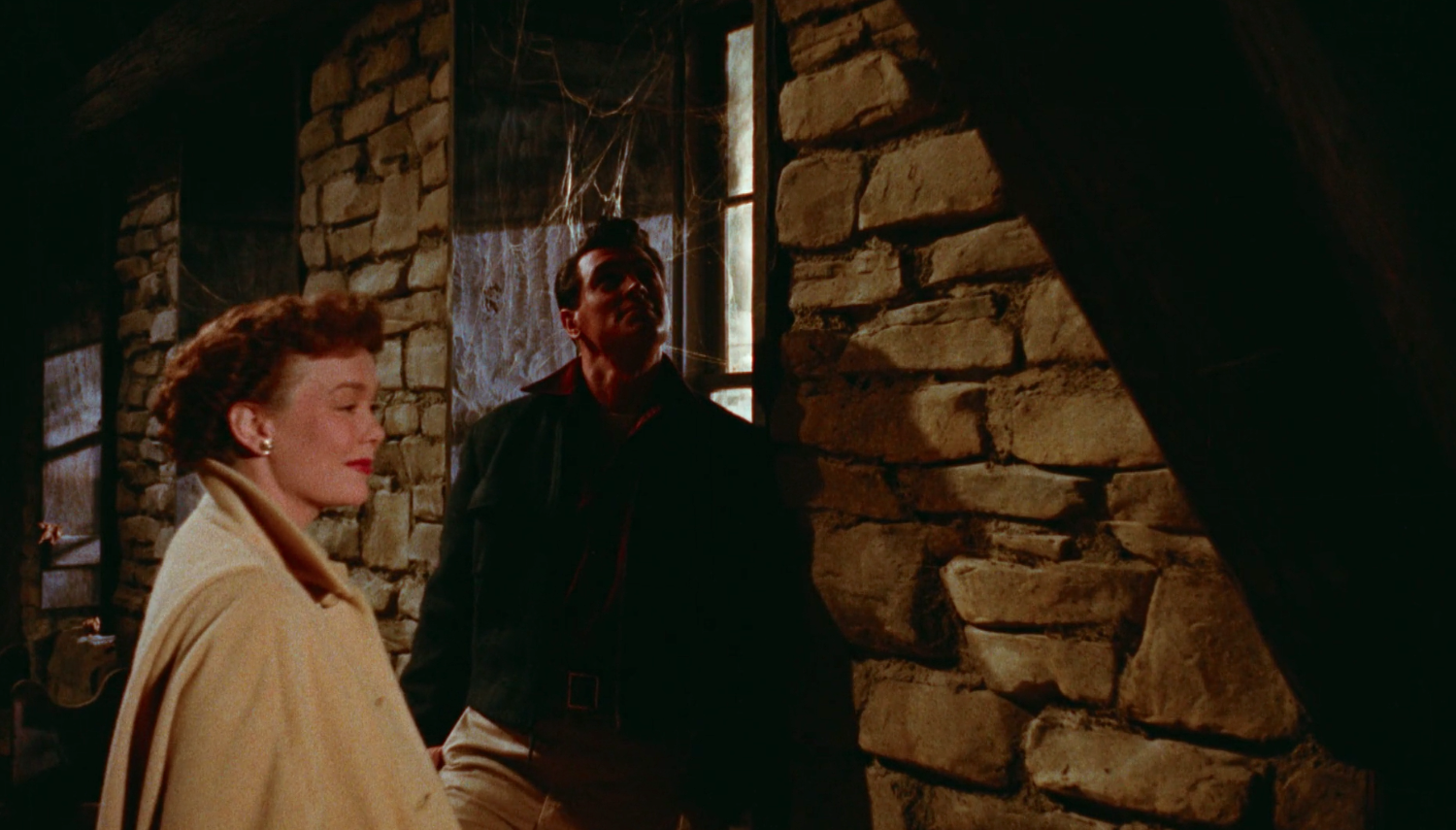
Cary: I suppose these old beams are rotted.
Ron: No they're oak. They're good for another 100 years
Do any of you remember that short burst of retro Douglas Sirk-enthusiasm in 2002? Todd Haynes, Pedro Almodóvar and François Ozon (all of whom cite Sirk as an influence) all had new very stylized films out, and the lost art of melodrama was suddenly in the air and being discussed. Sirk was briefly exalted (especially in Haynes' Far From Heaven, a direct homage to All That Heaven Allows our topic today). Those were good times. It should happen every few years, trotting Sirk back out again, to marvel at his gifts.
Realism has not always been the most prized end-game of art, but for most of our lives the consensus, from critics audiences and awards bodies has wildly favoured it. Give us something real and gritty! Melodrama, then, is a hard ask for many moviegoers though we've never understood why...
Exaggeration, metaphor, lush colors, and theatricality are all expressive in imaginative ways that 'realism' can never reach. Consider if you will this shot of the widow Mrs Cary Scott (Jane Wyman).
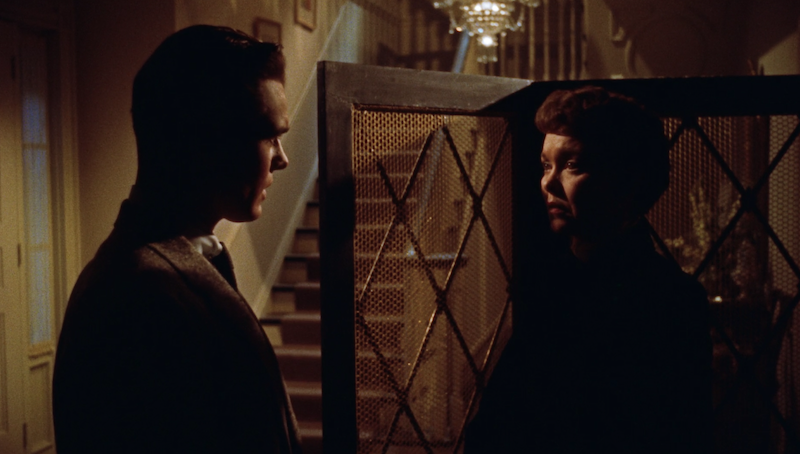 Worst Son
Worst Son
She's standing in her own foyer and for some inexplicable reason she's pinned behind a screen that's half 'confessional' half folding screen in case you wanted to slip into something more comfortable right where everyone can see you. This furniture makes no utilitarian sense. Meanwhile the lighting verges on the surreal, bathing both actors in heavy shadow to amp up the drama but with a key light for each face. (In this sequence her son is being utterly hateful about her sudden happiness; She's fallen in love and it inconveniences him.) You could get there with dialogue but why not really get there, spiritually and emotionally, with your visuals.
The cinematographer Russel Metty and art directors Alexander Golitzen and Eric Orbom (who all won Oscars later for Spartacus), find numerous and ingenious ways to pen Wyman in for Sirk's emotional purposes, no matter the room or scenario; There's one shot of a TV that is harrowing in context that someone will surely choose as Best Shot tonight. She's trapped in a life she no longer finds fulfilling. And all of her friends and family want her to stay put in her well decorated lonely cage just in case they decide to visit her.
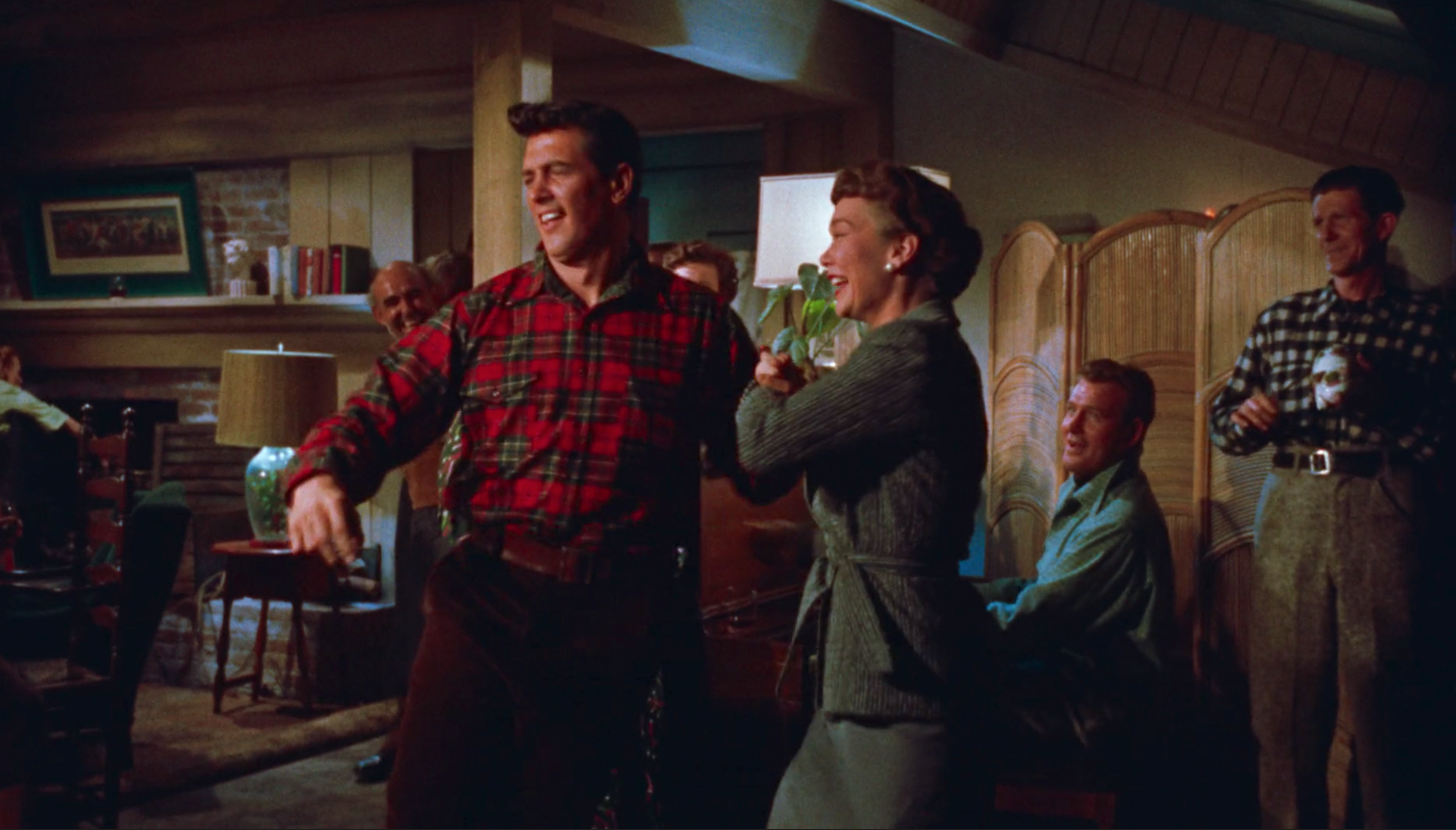 Happiest Scene
Happiest Scene
Sirk is too smart of a filmmaker not to understand that intense theatricality, utterly precise lighting, blocking and composition (not to mention the subdued character of the widow herself) can risk stuffiness. So note that when she shares scenes with her hunky younger lover Ron Kirby (Rock Hudson, utterly perfect) who doesn't care for society's expectations, she is presented much differently. While our heroine is still sometimes "framed" within the shot, she's never trapped or boxed in tightly within the images. And she is also quite mobile in the romantic scenes together, whisking around rooms... even dancing.
One of the distinct pleasures of Sirk's mid career work is his use of saturated colors. All That Heaven Allows, which is mostly set in the fall and winter, is filled with startling cool blues, and rich fireplace orange. But, because the filmmaking is so sophisticated it's never as simple as "orange" equals warmth and love and "blue" equals cold and distant.
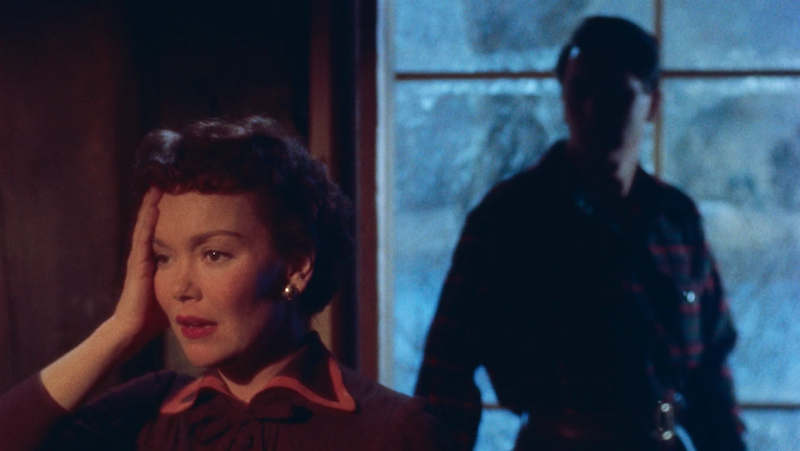
It's absurd to think of marriage. It's out of the question.
The movie's visual peak comes right at its center, in a long sequence in which Ron shows Cary the home he's been building for them to share. When he proposes marriage they're both just beautiful black silhouettes against a frosty blue exterior. It's obviously ice cold outside. But the widow panicks, calling the proposal "absurd" and retreats from him until she is ensconced in the warm light of the fireplace and he's but a shadow.
The image out of context could conjure a different film entirely, with the gardener as a menacing villain saying something terribly shocking or threatening to the heroine. But what's actually happened is just an honest declaration of love.
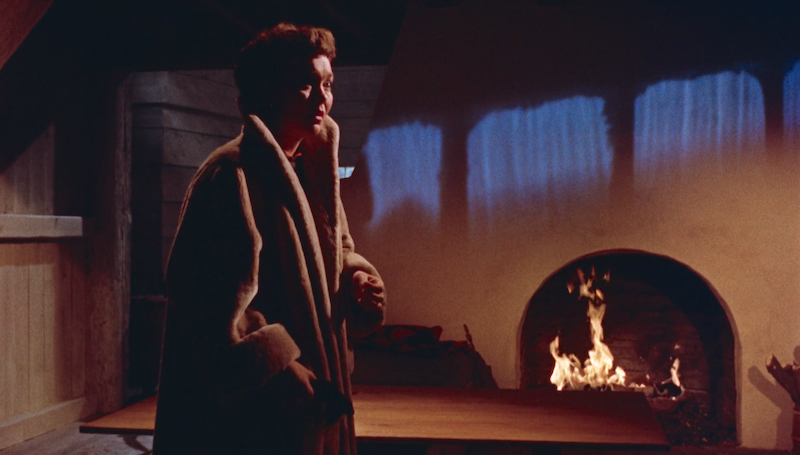
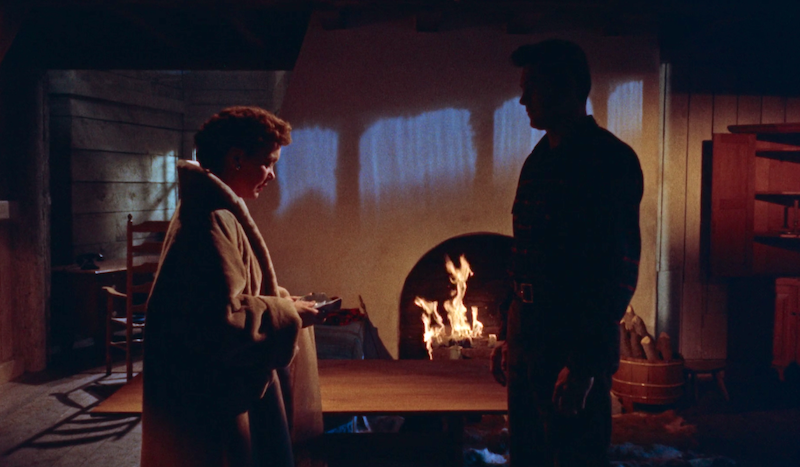 Best Shot
Best Shot
The contrast of the blues and oranges, the friction of their clichéd meanings versus the incongruous reality of what's actually happening is thrilling in the distinct way that only artifice and theatricality can reach. The picturesque giant window to his renovated barn-home gets a lot of screen time in the movie. It looks out onto the natural world that he loves so much. A friendly deer often walks by. She finds this home so beautiful and yet... she's rejecting it? That's what's absurd.
That window is never anything but a source of love and beauty in this movie... except this once with its reflection. Here at the very center of the movie it hangs between, separating them. It's now a damning canted angle in an otherwise still frame. It's pointing directly at her.

Here are what 8 other Best Shot players chose from this film
Next week's film is Francis Ford Coppola's THE CONVERSATION (1974) streaming on Hulu